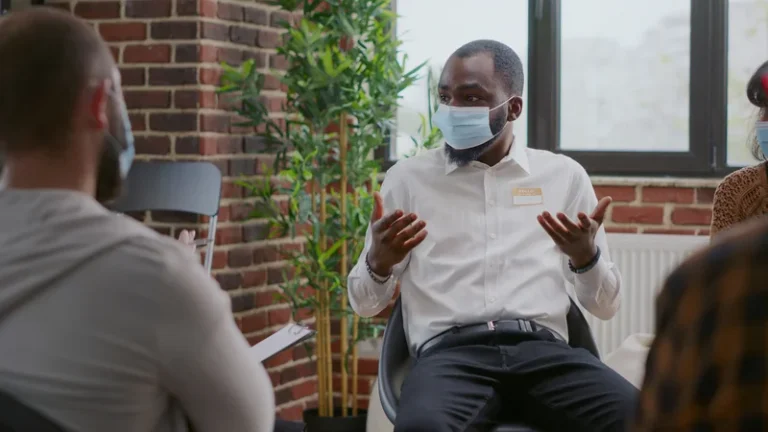Effects of chemical dependency on families include increased risk of domestic violence. Individuals with drug use disorder are also much less likely to find and keep a job compared to people who are not drug-addicted. Children of parents with a substance use disorder are at higher risk for impaired social, educational, and health functioning, as well as being at higher risk for using drugs themselves. This is a website with information and resources for families coping with mental and substance use disorders in loved ones.
The Power of Expressive Arts in Group Therapy

The act of creating art provides a safe space for self-reflection and emotional release. Through the use of colors, shapes, and textures, individuals can communicate their experiences and struggles in a non-verbal manner. When recovering from drug addiction (also called substance use disorder), many people feel alone.
- Recovery Resources for College Students is a web page that provides information and links to various resources that can help college students who are struggling with substance use or addiction.
- Then write about or discuss ways you can serve the same purpose in a more positive way, such as allowing yourself regular sessions of peaceful self-care to stave off overwhelm.
- These creative mediums offer a safe and supportive environment for self-expression and personal growth.
- S.O.S. meetings are based on the principles of cognitive-behavioral therapy, and they provide a supportive environment for people to share their experiences and learn from each other.
- We suggest you browse these articles for more ideas on how to set effective goals with your group therapy clients—this article on Goal-setting in Counselling and Therapy is a great place to start.
- Not only does this book cover the basics and the foundational assumptions and theories behind this group therapy model, it was also recently updated to include new developments in the field.
Proven Strategies to Overcome Cocaine Addiction and Take Back Your Life
- These include acknowledging the reality of death, moving toward the pain of loss, remembering the person who died, developing a new identity, searching for meaning, and continuing to receive support from others.
- One of the key benefits of group therapy is the opportunity to learn from others who have faced similar challenges.
- As clinicians, your key to facilitating engaging group sessions is choosing substance use disorder group topics that your clients will connect to and be able to reflect on even after the session is over.
- This addiction treatment center offers individualized treatment plans for all clients, including specialized detox care for those who struggle with alcohol addiction or drug addiction.
- These outcomes include significantly reduced drug and alcohol misuse, decreased criminal activity, and improved overall social and psychological well-being.
- When clients catch the ball, they have to talk about the statement or answer the question closest to their right thumb.
A list of specific topics for substance use groups, such as refusal skills, the difference between a lapse and a relapse, and fun in recovery. Group meditation is among the most powerful recovery activities for groups. The experience of meditating alongside others can be encouraging, inspiring, and help build social skills and self-esteem. Individuals who have practiced mediation alone may notice a different energy when meditating among others sharing their intentions.
Affinity Group Resources For Students Seeking Recovery
Pass out pre-printed outlines of a tombstone and ask your clients to think about this exercise seriously. We do not receive any commission or fee that is dependent upon which treatment provider a caller chooses. If you feel that any of our content is inaccurate, out-of-date, or otherwise questionable, please contact at Instruction may be led by an art therapist, or again, these activities may be more informal in nature, such as using watercolors, crayons, or paints expressively for 30 minutes.
Certain people should avoid alcohol completely, including those who:
- Developing an aftercare plan in early recovery can help prevent a relapse by providing you with support and allowing you to continue to work on issues surrounding your addiction.
- Warm-up exercises serve as a bridge between members’ daily lives and focused group discussions.
- By engaging in the creative process, individuals can tap into their emotions, gain insight into their recovery journey, and develop healthy coping mechanisms.
People who have completed inpatient or residential addiction treatment often find that they continue to face triggers and stressors that challenge their recovery. Transitioning to an outpatient program or meeting with a therapist can help you continue to address these issues. Unlike treatment programs, which are typically brief, alumni programs usually offer their services for an extended period of time or as long as needed. Actively participating in your treatment center’s alumni program can help you stay strong in your recovery and prevent future relapses. The following books, videos, and podcasts are packed full of information on group therapy.

ADVANCED ADDICTION TREATMENT
Trust allows individuals to open up and share their deepest fears and insecurities without fear of judgment. It creates a sense of safety and security, enabling participants to explore their emotions and vulnerabilities in a supportive substance abuse group activities environment. Trust also fosters a sense of camaraderie and connection among group members, which can be incredibly powerful in the recovery process. Many support group meetings and group therapy sessions start with check-ins.

- Suggest different coping strategies they could use to stay sober when triggered.
- Through the use of colors, shapes, and textures, individuals can communicate their experiences and struggles in a non-verbal manner.
- Group therapy activities for substance abuse can be related to a variety of topics including education, shame, guilt, triggers, cravings, boundaries, health, mental health, and sober support.
- Group therapy is a great option for those who are looking for additional support in their journey to recovery.


